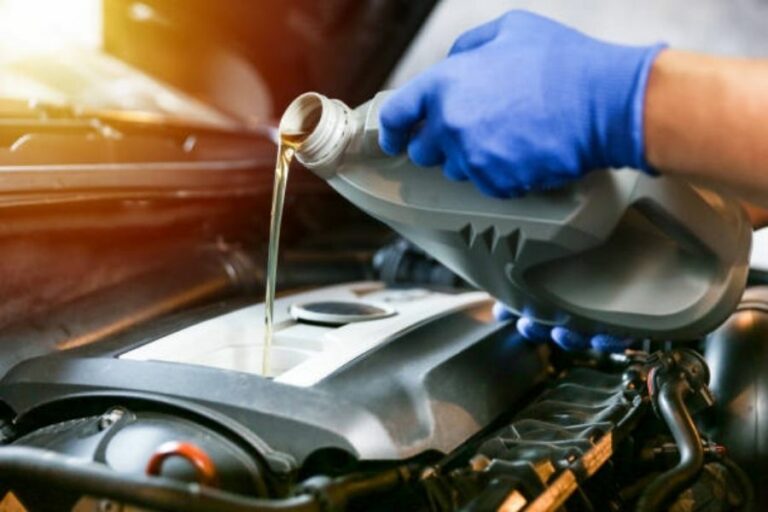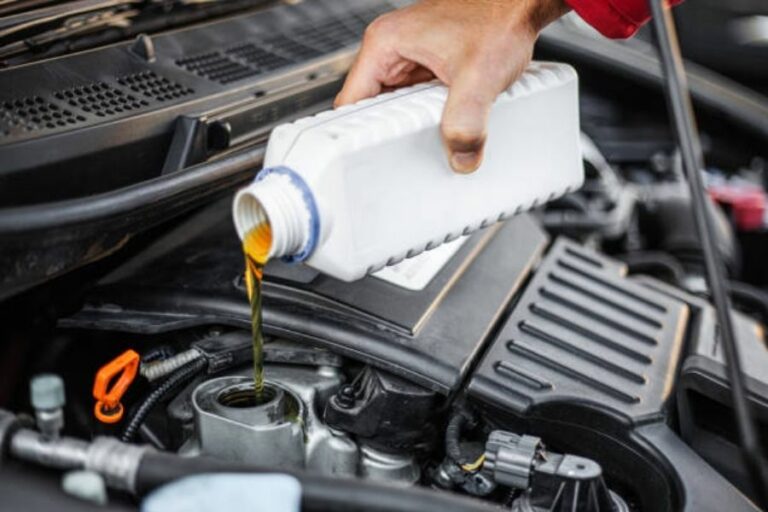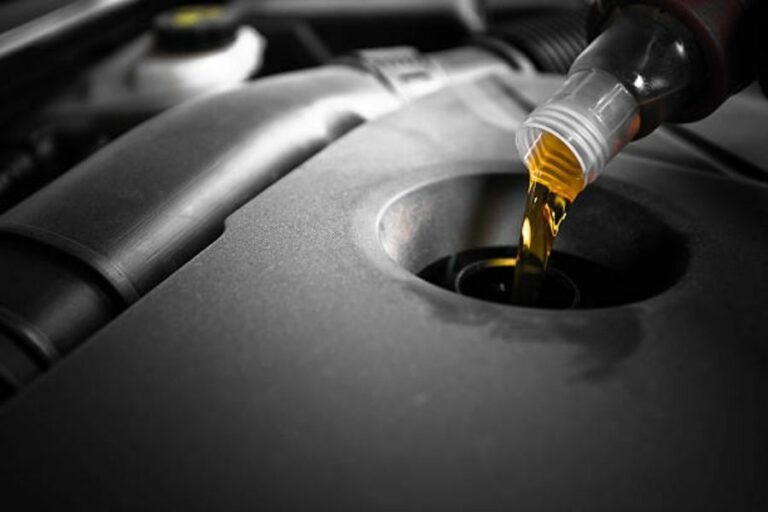Does Changing Transmission Fluid Help Shifting? You Need To Know Everything
Are you having trouble shifting gears in your vehicle? Maybe you’ve been told that you need to change your transmission fluid.
Is that really necessary? Does changing transmission fluid help shifting? This article will explore the benefits of changing the transmission fluid and whether or not it helps with shifting.
You will feel more consistent and smoother shifting because the new trans fluid will give better frictional properties.
We’ll also discuss a few alternative methods of solving the shifting problem if changing transmission fluid isn’t the right solution for you. Do you know What causes high rpm while driving on automatic transmission?
Benefits Of Changing Transmission Fluid
If you’re like most drivers, you probably don’t give your transmission much thought. But if your transmission starts to show signs of age (or if it’s just giving you problems), it’s time to start thinking about a replacement. Here are some of the benefits of changing your transmission fluid:
1. Improved Fuel Economy
A properly functioning transmission will help your car get better gas mileage by reducing the amount of wear and tear on the engine.
2. Increased Acceleration
A properly lubricated transmission will allow your car to accelerate more freely, providing a boost in performance when you need it most.
3. Safer Driving
A well-maintained transmission will help reduce the chance of accidents by ensuring that your car’s gears are always in the right position.
4. Longer Life
Transmission fluid is designed to protect your car’s engine and other parts against wear and tear, so regularly changing it will dramatically extend the life of your vehicle.
5. Car Runs Better
Transmission fluid has several additives that help improve the performance and smoothness of your car’s shifting.
6.No Engine Lock-Up
A properly functioning transmission will prevent your car from “locking up” during hard acceleration or braking, preventing damage to the engine.
7. Saves You Money
Regular transmission fluid changes can save you hundreds of dollars in repair costs. Nissan CVT Fluid NS2 Alternative
Should I Change My Transmission Fluid If It’s Never Been Changed?
If your transmission fluid has never been changed, it’s definitely time to do so. This will reduce the risk of causing a transmission failure, but it will also help improve your car’s performance. Here are the reasons why you should change your transmission fluid:
- Transmission fluid is designed to protect your car’s transmission from the elements and wear and tear. Over time, this protective coating can wear away, leading to increased friction and decreased efficiency in your car’s transmission.
- Transmission fluid also helps prevent rust and corrosion, which can lead to serious problems down the line.
- Changing your transmission fluid will help to improve your car’s performance by reducing the friction in the system and providing better lubrication for moving parts.
- Finally, changing your transmission fluid will also give your car a fresh smell – something that you’ll surely appreciate!
Bottom line: If you’ve never changed your transmission fluid, it’s time to start doing so. It won’t take long, and it could potentially save you a lot of trouble down the line.
Does Changing Transmission Fluid Improve Performance?
Changing the transmission fluid in your car can definitely improve its performance. By performing this simple maintenance task, you’ll likely notice an improvement in both acceleration and fuel economy. Here are a few reasons why changing your transmission fluid is a good idea:
- A failing transmission fluid can cause poor acceleration and increased engine wear.
- A clogged transmission can reduce fuel efficiency and even reduce performance while driving.
- A low transmission fluid level can also cause severe engine stalling and grinding.
- Over time, a clogged or failing transmission can result in costly repairs or even replacement.
- Fluid helps to distribute heat throughout the engine faster and more evenly, which can help to prevent over-heating and component failure.
- Fluid also helps to lubricate the engine’s moving parts and protect them from corrosion.
- Keeping the transmission fluid at a proper viscosity level can help reduce friction and enhance gear shifting.
If you’re experiencing any of the above symptoms, it’s time to change your transmission fluid! By following these simple steps, you’ll be on your way to improving your car’s performance in no time at all!
300,000 Miles Never Changed Transmission Fluid
Changing transmission fluid on a high mileage car can be risky, and while it might seem like 300,000 miles never did anything to the transmission, in fact, it’s a good idea to consult a mechanic before doing anything yourself.
Changing transmission fluid on a car with 300,000 miles or more can contain harmful contaminants that can damage the transmission and increase the risk of engine failure.
Additionally, it can be difficult to determine the level of fluid required, and it’s important to replace the fluid at the correct time.
Changing the fluid too early or too late can cause problems, so it’s always best to consult a mechanic.
Should I Change Transmission Fluid After 100k Miles?
How Long Does It Take To Change Transmission Fluid?
Changing transmission fluid can take anywhere from 30 minutes to 1 hour, depending on the make and model of your vehicle.
In most cases, it is a relatively quick and straightforward process that can be performed by a car enthusiast with basic DIY skills.
First, make sure to remove all of the contents of the transmission fluid reservoir. This includes the filter, transmission fluid, and any dirt or debris that may have accumulated.
Next, remove the pan and drain the old fluid into a container. Use a filter to collect any larger pieces of debris.
Finally, replace the pan with the new fluid and replace the filter. Reinstall the cover and tighten all of the bolts until it is secure.
How To Know When to Change Transmission Fluid?
If you are noticing any of the following symptoms, it is time to change your transmission fluid:
Grinding Noise
This may be a sign that the transmission fluid is too thick or old and is causing the metal to against metal grinding.
Engine Running Hot
This may be a sign that the transmission is not able to properly distribute the engine’s heat and is overworking the gears.
Slipping Out of Gear
This may be a sign that the transmission is not able to properly transfer power from the engine to the wheels.
Can’t go Into Reverse Gear
This may be a sign that the transmission is not able to properly move the car from one gear to another.
Gears Slipping
This may be a sign that the transmission has lost its ability to convert energy from the engine into motion.
Transmission Whining Noise
This may be a sign that the transmission is not properly lubricated and is causing the metal to rub against metal.
Dirty Transmission Fluid
If the transmission fluid looks cloudy or has chunks, it needs to be replaced.
Can Changing Transmission Fluid Be Bad?
Yes, changing transmission fluid can be bad. Transmission fluid contains various additives and dispersants to improve the performance of the engine.
While these additives and dispersants are generally safe, they can cause problems if they’re not used correctly.
For example, they can damage the transmission while it’s in operation. In extreme cases, they can even cause a transmission failure.
So, it’s important to use transmission fluid carefully and only change it when you get a recommendation from your vehicle’s manufacturer or when you notice signs of trouble.
Changing transmission fluid can be a necessary procedure for many vehicles, but it is important to do it correctly to avoid any issues.
Follow the manufacturer’s instructions to the letter to avoid any permanent damage or problems. Also, be sure to have the correct tools and fluids on hand in case of an emergency.
Changing transmission fluid can also be a time-consuming process, so plan accordingly. Make sure to have a full tank of fuel and enough time to get to your destination.
And last but not least, be sure to consult a qualified mechanic for any questions you may have about the process.
Should I Change Transmission Fluid After 100k Miles?
Changing the transmission fluid in your car after 100,000 miles is a good idea to keep it in optimal condition. Not only will this prevent future problems, but it will also improve the performance of your car.
When the transmission fluid is properly lubricated, it can reduce the amount of noise that is generated when the gears are in use.
This can lead to a more refined ride and increased fuel efficiency.
Additionally, the transmission fluid will also help protect your car’s internals by preventing rust and corrosion.
So, if you’re ever noticing decreased performance or a loss of power, it is a good idea to change your transmission fluid.
How Often Should I Change My Transmission Fluid Toyota Camry?
Every time your Toyota Camry sees the road, it is subjected to wear and tear. This includes the transmission fluid, which is responsible for transferring the power from the engine to the axle. If this fluid becomes contaminated, it can cause reduced performance and possible gearbox failure.
Toyota recommends changing your transmission fluid every 15,000 to 100000 miles or every three years, whichever comes first.
Keep in mind that this recommendation is based on a Toyota Camry that is driven in a reasonable manner and does not experience excessive wear and tear.
If you drive your Camry in heavy traffic or in extreme conditions, perform the transmission fluid change sooner.
Tacoma Transmission Fluid Change Interval
Metal Shavings in Transmission Fluid Good
Frequently Asked Questions
1. Does Changing Transmission Fluid Improve Performance?
Changing your transmission fluid can improve the performance of your car. It will reduce noise and friction, which can lead to a more refined ride and increased fuel efficiency.
Additionally, the transmission fluid will help protect your car’s internals by preventing rust and corrosion.
2. Does Changing Transmission Fluid Improve Shifting?
Yes, changing transmission fluid can improve shifting by restoring the transmission’s “clutch” function.
Transmission fluid contains friction modifiers, anti-wear and rust inhibitors, and a slip modifier. When the clutch function is restored, it helps to minimize slippage and gear engagement.
3. Can Dirty Transmission Fluid Cause Shifting Problems?
Yes, dirty transmission fluid can cause problems with your car’s shifting. Dirty fluid can contain metal particles and other toxins that can interfere with the operation of your car’s gears. This may lead to unexpected shifts or a loss of power when you’re trying to accelerate.
4. Does Transmission Fluid Help Shift Gears?
Changing your transmission fluid will not necessarily help you shift gears better. The fluid’s lubrication is simply one factor that contributes to a smooth and consistent shifting experience.
Other factors, such as the condition of your drivetrain, are also important when it comes to shifting quality.
Conclusion
Are you having trouble shifting your gears in your vehicle? Is it difficult to get up to speed on the highway? If you’re struggling with transmission problems, you may want to consider changing your transmission fluid.
Changing the fluid can help address issues with shifting and may also help improve your overall driving experience.
Here are some tips above on how to change your transmission fluid and some pointers on what type of fluid to use.
After reading this article, I hope you have the answer to if does changing transmission fluid help shifting?






